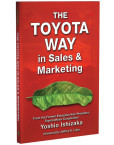Truck manufacturer flourishes with Kaizen initiatives
United Kingdom-based truck manufacturer Leyland Trucks, which delivers its products under the DAF brand name, currently has a 15 percent share of Europe's new truck registration market. As Business Case Studies reports, the company's current goal is to expand this market share to 20 percent by increasing its production capacity and embracing the Japanese continuous improvement principle of Kaizen.
“The great thing about the Kaizen process is that people who really understand manufacturing at a nuts-and-bolts level can get involved in introducing improvements,” the news source notes. In short, those working on the shop floor may be able to provide insights that are overlooked by leaders higher up the chain. With this in mind, the company encourages its workers to take an active role in decision-making, which not only generates ideas for streamlining processes and reducing waste but also boosts employee engagement.
Kaizen at the core of groundbreaking initiative
Leyland's groundbreaking introduction of a robotic paint spray booth for the truck chassis made it the first assembly plant in the world to use robots on a moving conveyor for the purpose of chassis-painting. The manufacturer arrived at the innovative decision to implement the paint spray booth by using the concept of looking backward to go forward. Specifically, the manufacturer analyzed the recent successful introduction of a production line, took the lessons learned from that project and applied them to the new booth. Leyland solicited feedback from employees who were involved in the production line project at all levels, and their suggestions helped the booth introduction go more smoothly.
In addition to helping companies streamline new project kickoffs, Kaizen can also be valuable in terms of optimizing existing processes. In 2001, Leyland's managing director set a long-term goal to boost quality by reducing mechanical defects and breakdowns. At the time, the value of the company's Quality Index was 13.2, and the aim was to reduce this to 5.0 – a decrease of 62 percent. With the help of Lean benchmarking, Leyland was able to meet this target, and it is currently the quality improvement frontrunner among the nine manufacturing plants owned by its parent company, PACCAR.
The HIKE toward quality
The fact that qualified continuous improvement practitioners comprise more than 10 percent of Leyland's 1,000-strong workforce highlights the company's efforts to enact and monitor Six Sigma-based process improvement. The High Impact Kaizen Event (HIKE) initiative launched by Leyland in May 2006 is one example of how Six Sigma expertise helped the manufacturer address workplace inefficiencies. Under HIKE, six pairs of project leaders examined processes at the vehicle finishing area of the plant, spoke to employees to gain firsthand insight into problems and challenges, and then held working lunches to brainstorm solutions. Suggestions made by employees as a result of the HIKE program led to significant reductions in truck hours, line-side materials and employee walking distances.
Realizing these kinds of achievements is not possible without a company culture that is focused on continuous improvement. Leyland's core values are based around innovation, involvement and engagement, and focus on training, team-building, decision-making and idea generation.
Value manifestos may look good on paper, but unless there are behaviors in place to back them up, they can quickly fall flat. Team members at Leyland are encouraged to participate in the day-to-day sharing of ideas, as well as attend weekly briefings to discuss developments, successes and challenges. The company also holds frequent teamwork sessions, celebrates the achievements of individuals and teams on a quarterly basis and distributes quarterly newsletters to keep workers informed. Through dynamic process improvement efforts and a focus on employee engagement, Leyland has flourished over the past decade.




